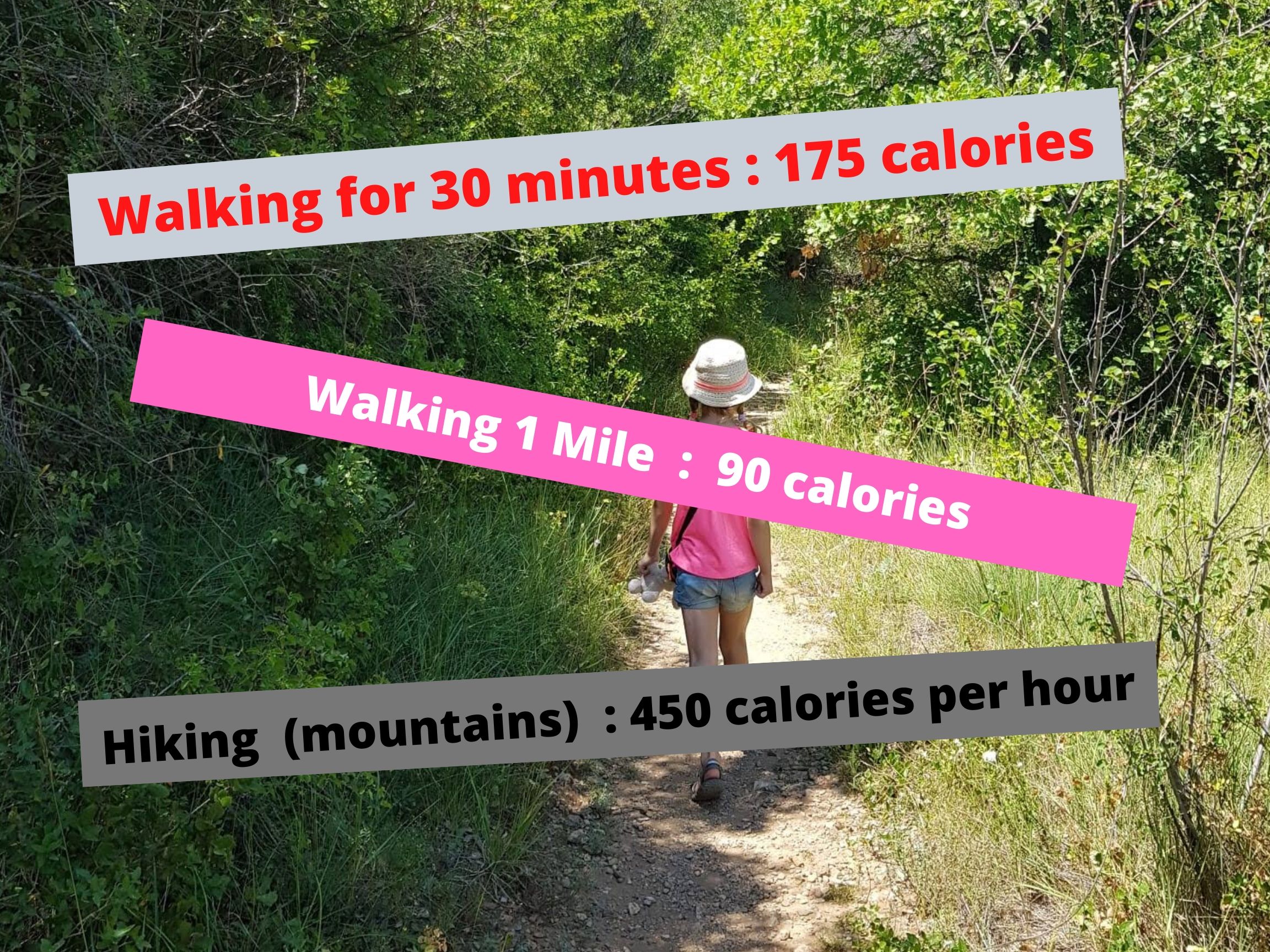How many calories do you burn walking?
Do you want to lose weight without breaking a sweat? Then try walking! For years, scientists have been praising the health benefits of walking. Not only is it good for your mental health; a walk around the block does wonders for your mood, creativity, and stress levels, but for your physical health as well. It helps you to stay fit and burn calories.

Walking Calorie Calculator
Quickly calculate how many calories you burn by walking based on time and weight:

The benefits of walking
Walking is an activity that is easy for most people to do. The only thing you need is a good pair of shoes. Another benefit: you can walk anywhere you want: the forest, mountains, beach, through your neighborhood, or in the city. Time and place doesn’t matter. Even if you aren’t as fit, you can start by going for a walk around the block, to slowly build up stamina. So what are you waiting for?
There are countless health benefits when it comes to walking, here is a list of some of them:
- Walking is good for your heart and blood vessels. It lowers your blood pressure and cholesterol levels, which reduces the chance of heart disease.
- Exercise keeps your bones, muscles, and cartilage strong. Not enough exercise can lead to the thinning of cartilage which can cause joint problems. (Exercise keeps your bones, muscles, and cartilage strong.)
- Walking reduces the chance of diabetes by about 60%
- Walking is good for your memory: your brain is stimulated and this can lead to a reduced chance of Alzheimer's.
- Fresh air can do wonders for people with allergies such as allergies to dust mites or animal hair.
- 10 minutes of walking a day are enough to reduce the risk of premature death by 15%.
Losing weight by walking
Research has proven that if you want to lose weight, walking is a
better option compared to jogging. You burn more calories when jogging,
but those calories that are being burned are carbohydrates, not fat.
The faster you run, the larger the percentage of calories you burn come
from carbohydrates. When you walk, you may burn fewer calories, but you
do burn the calories you need to burn to lose weight: the ones that come
from the fat. And that is exactly what you need to lose weight.
How long do you need to walk for?
Walking allows you to choose when and how long you walk for, but
certain effort is needed to acquire specific results. According to
research, women that walked three more intensive walks a week (of around
30 minutes) next to two more leisurely walks, lost up to six times more
stomach fat compared to the women who walked leisurely five times a
week.
An intensive walk is one where you keep up a slightly faster pace. Your
heart rate and body temperature rise, and your breathing becomes more
labored. This way, the burning of fat is stimulated and causes you to
burn more calories and lose weight.
How many calories are burned walking 30 minutes?
Use the table below to quickly find out how many calories people of a certain weight burn by walking for a certain length of time. This information is based on a walking speed of 3 mph. For a precise calculation, use our calculator to find out how many calories are burned by walking.
| 140 lbs | 160 lbs | 180 lbs | 200 lbs | |
|---|---|---|---|---|
| 15 min. | 42 kcal | 48 kcal | 54 kcal | 60 kcal |
| 30 min. | 83 kcal | 95 kcal | 107 kcal | 119 kcal |
| 45 min. | 125 kcal | 143 kcal | 161 kcal | 179 kcal |
| 60 min. | 167 kcal | 191 kcal | 214 kcal | 238 kcal |
| 90 min. | 250 kcal | 286 kcal | 321 kcal | 357 kcal |
Do you want to burn more calories while walking?
Do you want to burn some extra calories while walking? Try some of these things:
- Walk faster. Your heart rate will rise and you'll burn more calories.
- Carry weights or something heavy in a backpack. (ie. bottles of water)
- Tense your abdominal muscles while walking.
- Walk on uneven or unpaved paths such as sand.
- Walk in an area with many slopes and steep terrain. Going uphill will help build muscles, and the more muscles you have, the more calories you burn while resting.
7500 or 10000 steps a day?
Walking is good for your brain, body, and weight. But how many steps should you actually take for these benefits? Many researchers have different opinions. It is often said that 10000 are needed, but research has recently proven that any more than 7500 steps do not seem to increase these health benefits.
Reseachers did, however, see a big difference when it came to fewer steps. From the women that were researched, the ones that reached an average of 2700 steps a day, ran the biggest risk of premature death. The conclusion is clear: the more steps you take a day, the more active your lifestyle. An active lifestyle ensures that you can live for longer.
Do you have any comments or additional information about this article? Leave your reactions down below.
